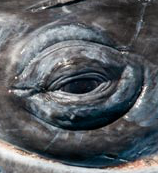Whales enjoyed COVID pause
 Humpbacks appear to have been happier during the COVID-19 pandemic.
Humpbacks appear to have been happier during the COVID-19 pandemic.
University of Queensland-led research has discovered that migrating humpback whales off Australia's east coast exhibited reduced stress levels during the first year of the COVID-19 pandemic.
The finding highlights a significant impact of decreased human activity on marine life.
Dr Jake Linsky from UQ's School of the Environment led the study, conducted at Moreton Bay Research Station, to evaluate the health of the species amidst unprecedented changes in human activity.
“We used drone photographs and blubber samples to assess the health of eastern Australian humpback whales in the waters off Minjerribah - North Stradbroke Island - during their migration in 2020 and 2021,” Dr Linsky stated.
The research team utilised drone images to measure whale size and body condition, essential indicators of energy stores required for their lengthy annual migration and intense breeding periods.
Additionally, small boats were employed to collect skin and blubber samples from the whales’ flanks.
These samples were analysed for hormones and gene expressions related to stress, energy reserves, and immune health.
The analysis revealed a significant decrease in cortisol concentrations in the whales in 2021 compared to 2020.
“This change in their physiology suggests a decline in environmental stressors between the two years,” Dr Linsky explained.
Factors such as a shift to La Niña climate conditions and dramatic reductions in human activity during the pandemic likely contributed to these findings.
Dr Linsky further hypothesised that the whales might have been responding to a decrease in pollutants in their remote feeding waters, a theory supported by similar studies on whales across the Antarctic continent.
“Previous studies have found similar changes to stress hormones in whales on the opposite side of the Antarctic continent - our findings support the idea that these changes occurred throughout the Southern Ocean,” he said.
Eastern Australian humpback whales have shown a remarkable ability to adapt to environmental changes, yet Dr Linsky emphasised the importance of mitigating human impacts to ensure their continued success.
“By continuing to monitor and protect humpback whales off Australia’s east coast, we can ensure their health and stability while also offering valuable insights into how other struggling whale populations might be conserved,” he concluded.
The research paper has been published in Marine Environmental Research.








 Print
Print